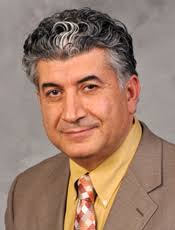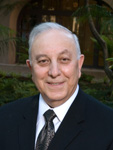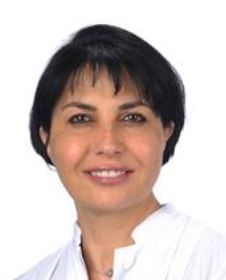Renowned Speakers

Alexander G. Li
Russian society of plastic-reconstructive and aesthetic surgeons Russia Russia

Leila Freire Rego Lima
Jurados Institute of Education and Research Brazil

Jurados Institute of Education and Resea
Director, Upstate University USA

Salah Rubayi
Salah Rubayi USA

Rekha Matta M.Ch
Krishna Institute of Medical Science India

Hossam Eid
Dubai Health Authority UAE

Lale Hakami
University Hospital Munich Germany

S. Spagnolo
GVM Care & Research Italy
Recommended Global Surgery Webinars & Conferences
Asia Pacific & Middle East
Canada
Robotic Surgeries-2022
About Conference
It is our immense pleasure to invite you as a speaker or delegate for the “17th International Conference on Advancements in Robotic Surgeries” which is going to be held during October 27-28, 2022 Budapest, Hungary. It is focused on the theme “Global Advancements in Robotic Surgery Research & Its Technologies”.
Advancements in Robotic Surgeries melds brief keynote presentations, speaker talks, Exhibition, Symposia, and Workshops, with the theme “Global Advancements in Robotic Surgery Research & Its Technologies". ROBOTIC SURGERIES-2022 brings together individuals who have an interest in different fields of robotic surgery like Heart surgery, Urologic surgery, Endometriosis, Gynecological surgery, Thoracic surgery, General surgery, colorectal surgery, Head and neck surgery.
Conference Series Organizes 3000+ Conferences Every Year across USA, Europe & Asia with support from 1000 more scientific societies and Publishes 900+ Open access journals which contains over 500000 eminent personalities, reputed scientists as editorial board members.
Conference Highlights:
· General Surgery
· Cardiac Surgery
· Transplantation Surgery
· Endocrine Surgery
· Aesthetic medicine and Plastic Surgery
· ENT Surgery
· Ocular Surgery
· Urology Surgery
· Orthopedic Surgery
· Acute Care Surgery
· Obstetrics and Gynecology
· Robotic Surgery
· Pediatric Robotic Surgery
· Spinal Anesthesia
· Laser surgery
Why to Attend??
ROBOTIC SURGERIES-2022 is intended to provide a notable opening to the experts in the field of robotic surgery to discuss the latest research and challenges in the arena. ROBOTIC SURGERIES-2022 is planned to provide a special podium for Managing Directors, Robotic surgery Innovators, and other Robotic surgery professionals, researchers and students working in the arena to consciously, exchange visions and their understandings in front of large intercontinental listeners. These Robotic surgery conferences or rather all Robotic surgery conferences, Robotic surgery events and meetings will help in intermingling with different brains in Surgeries and advanced robotic surgeons throughout the world, B2B construction between specialists and academicians. The companies dealing with Robotic surgery equipment’s can exhibit their products in the exhibition and expo.
Who can attend the Conference?
· Directors, CEO’s of Organizations
· Doctors
· Association, Association presidents and professionals
· PhD Scholars
· Noble laureates in Health Care and Medicine
· Dean’s, Professors, Associate Professors and Assistant Professors
· Graduates and Postgraduates
· Research Institutes and its members
· Hospitals sharing their novel research in the arena of Robotic surgery.
Sessions &Tracks
General surgeons make an incredible impact on the world every day. Surgeons consistently save countless lives and leave a lasting impact on the people they help. The surgeries they perform give people their lives back. Surgeons can see the people who came in come out a completely different person who now has a better life because of the work they did. General surgery is one of the most difficult, yet rewarding careers. It takes a lot of hard work and perseverance. It can be stressful at times, but it's also inspiring, motivating and exciting. General surgeons go home every day knowing that they are doing something worthwhile that will have a positive impact on the world.
Cardiac surgery, or cardiovascular surgery, is surgery of the heart or large vessels performed by cardiac surgeons. It is often used to treat complications of ischemic heart disease (for example, with coronary bypass); to correct congenital heart disease; or to treat valvular heart disease from various causes, including endocarditis, rheumatic heart disease, and atherosclerosis. This also includes heart transplantation.
Track 3: Transplantation Surgery
Transplantation, also called a transplant or organ transplant, in medicine, a section of tissue or a complete organ that is removed from its original natural site and transferred to a new position in the same person or in a separate individual. The term, like the synonym for graft, was borrowed from horticulture. Both words imply that success will result in a healthy and thriving graft or graft, which will draw its nourishment from its new environment.
Surgery performed with emphasis on one or more of the endocrine organs is called endocrine surgery. Endocrine organs are glands located throughout the body, which secrete hormones essential for maintaining homeostasis (i.e. a constant internal environment) and metabolism into the bloodstream.
These glands together form what is called the endocrine system, whose control and command centers are the pituitary gland and the hypothalamus. The other endocrine glands are the endocrine pancreas, pineal, adrenal, thyroid and parathyroid glands. Specialists who perform surgery on these glands are called endocrine surgeons.
Track 5: Aesthetic medicine and Plastic Surgery
Aesthetic plastic surgery refers to procedures that improve the appearance of the face and body. They include tummy tuck, breast augmentation, breast reduction, eyelid surgery, nose reshaping, facelift, and fat removal.
Aesthetic plastic surgery is performed to improve someone's appearance. Reconstructive plastic surgery, on the other hand, improves both the appearance and functions of the face and body. It can treat hereditary deformities, trauma or revisions after surgeries including mastectomy or lumpectomy.
ENT surgery is a medical specialty performed by ENT surgeons. “Otolaryngologists,” as they are known in the medical community, can be a bit of a tongue twister to the layman, which is why they are better known as ENT specialists. The term is also self-explanatory, as it derives from their area of ​​expertise - the ear, nose and throat. This includes related structures like the sinuses and the larynx. While GPs may be able to treat problems that affect these areas, they can only offer medical treatment. ENT specialists are physicians trained in both the medical and surgical management of these health conditions, which is why they are also called head and neck surgeons.
Eye surgery, also called ophthalmic or ocular surgery, is surgery performed on the eye or its appendages, by an ophthalmologist. Eye surgery is synonymous with ophthalmology. The eye is a very delicate organ and requires extreme care before, during and after surgery to minimize or prevent further damage.
Urosurgery is the medical specialty that involves surgical procedures for the treatment of various conditions related to the reproductive and urinary organs. The specialty mainly includes urogenital procedures such as inguinal hernia surgery, total cystectomy, bladder tumor surgery and other urological procedures.
Orthopedic surgery, also called orthopedics, is a branch of surgery that deals with health problems and diseases that affect the musculoskeletal system, including joints, bones, ligaments, tendons, muscles, and nerves. Orthopedic surgeons are known as orthopedic surgeons and use both surgical and non-surgical treatment methods to relieve patients suffering from sports injuries, degenerative diseases, infections and other health problems that affect the system musculoskeletal.
Acute Care Surgery is a developing field of surgery that has taken the principals of trauma care and applied them to patients with other urgent, time-sensitive surgical conditions. Thus, our Acute Care Surgery team provides the full range of care to patients who are critically ill with acute surgical emergencies, shock, severe sepsis, respiratory failure, and advanced multi-organ failure, in addition to caring for patients with traumatic injuries.
Track 11: Obstetrics and Gynecology
Obstetrics and Gynecology is the medical specialty that encompasses the two sub-specialties of Obstetrics (covering pregnancy, childbirth and the postpartum period) and Gynecology (covering the health of the female reproductive system - vagina, uterus, ovaries and breasts).
Postgraduate training programs for the two fields are usually combined, preparing the practicing obstetrician-gynecologist to be adept in both female reproductive health care and pregnancy management, although many physicians continue to develop subspecialty interests in one area or another.
Robotic surgery, also called robot-assisted surgery, allows doctors to perform many types of complex procedures with more precision, flexibility, and control than is possible with conventional techniques. Robotic surgery is commonly associated with minimally invasive surgery - procedures performed through tiny incisions. It is also sometimes used in some traditional open surgical procedures.
The most widely used clinical robotic surgical system includes a camera arm and mechanical arms to which surgical instruments are attached. The surgeon checks the arms sitting in front of a computer console near the operating table. The console provides the surgeon with a magnified high definition 3D view of the surgical site. The surgeon directs the other members of the team who assist during the operation.
Track 13: Pediatric Robotic Surgery
Pediatric robotic surgery offers unique challenges in this rapidly evolving field. The financial costs of providing this cutting-edge technology are significant for what are essentially low-volume, complex cases. The rate of adoption has been slow in most pediatric surgery centers around the world.
Spinal anesthesia is a neuraxial anesthesia technique in which local anesthetic is placed directly into the intrathecal space. This activity reviews the technique, contraindications and indications of spinal anesthesia and highlights the role of the inter-professional team in the management of these patients.
Laser surgery is a type of surgery that uses special light beams instead of instruments, such as a scalpel, to perform surgical procedures. There are several different types of lasers, each with characteristics that perform specific functions during surgery. Laser light can be delivered continuously or intermittently and can be used with fiber optics to treat areas of the body that are often hard to reach.
Track 16: Robot-Assisted Neurosurgery
Robot-assisted neurosurgery uses an advanced surgical tool called ROSA Brain to perform minimally invasive procedures in the brain. ROSA stands for Robotic Surgical Assistant. It combines a robotic arm with the ability to obtain detailed images of your child's brain. ROSA helps neurosurgeons treat children with epilepsy and other brain problems faster, safer and more effectively.
To Collaborate Scientific Professionals around the World
Conference Date October 27-28, 2022
For Sponsors & Exhibitors
Speaker Opportunity
Useful Links
Supported By
All accepted abstracts will be published in respective Conference Series International Journals.
Abstracts will be provided with Digital Object Identifier by
